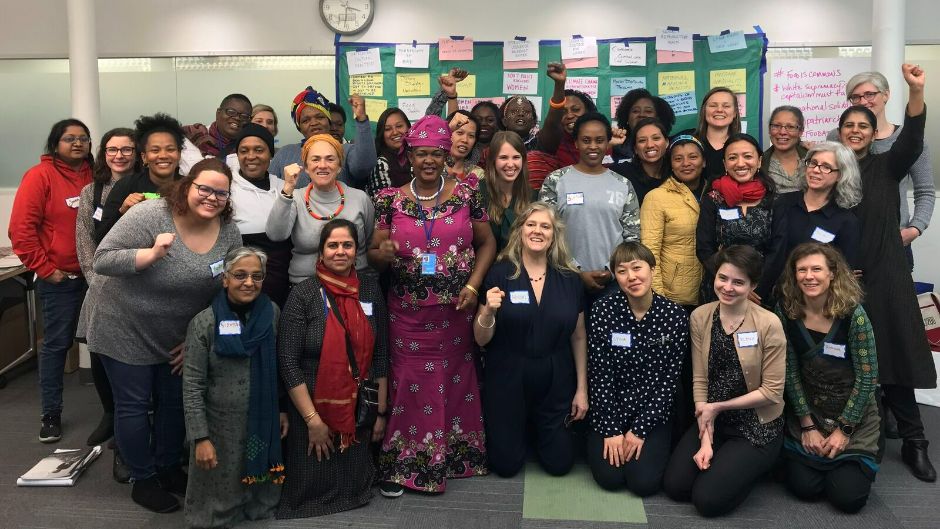Under the supervision of Human Rights Clinic Acting Associate Director Denisse Córdova Montes, former law students Gabriela Valentin Diaz, J.D.’21; Mary Miller, J.D.’22; and Abril Montero Dokser, J.D.’22, coordinated Indigenous groups’ main submission to the CEDAW Committee detailing how the human rights enumerated in the U.N. Convention on the Elimination of All Forms of Discrimination Against Women should be understood and applied as they relate to the lives of Indigenous women and girls.
Building on its work in support of Indigenous women’s groups, the Clinic’s submission to the U.N. described the individual and collective dimensions of rights that are especially relevant for Indigenous women and girls, such as the rights to land, water, food, and seeds, as well as the rights to self-determination, equality, and freedom from gender-based violence, among others. For this advocacy with the CEDAW Committee, the Clinic worked closely with FIMI and MADRE.
These efforts paid off when the CEDAW Committee adopted its groundbreaking General Recommendation No. 39 in October 2022, expressly urging States to acknowledge the contribution of Indigenous women and girls to “food production, sovereignty and sustainable development,” to “[p]rotect ancestral forms of farming and sources of livelihood for Indigenous women, and ensure the meaningful participation of Indigenous women and girls in the design, adoption and implementation of agrarian reform schemes and the management and control of natural resources,” and to “[e]xercise due diligence to prevent, investigate and punish gender-based violence committed against Indigenous women and girls when they are performing agricultural work,” among several other significant State guidance.
This was the first international human rights instrument to expressly enumerate human rights protections for Indigenous women and girls.
“The clinic’s advocacy helped create a new international human rights standard for Indigenous women and girls, particularly in relation to food and natural resources, gender-based violence, and environment rights,” said Córdova Montes.
Read more about Human Rights Law at Miami Law.

